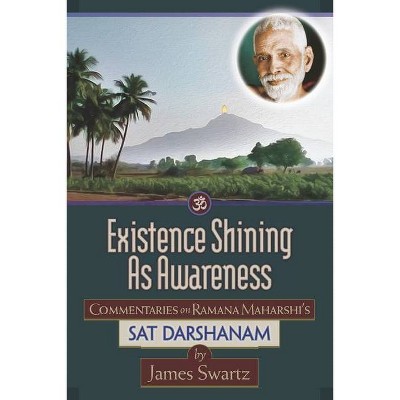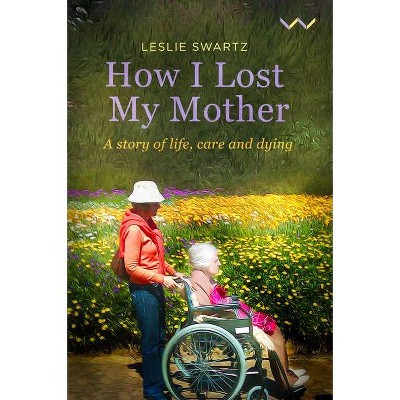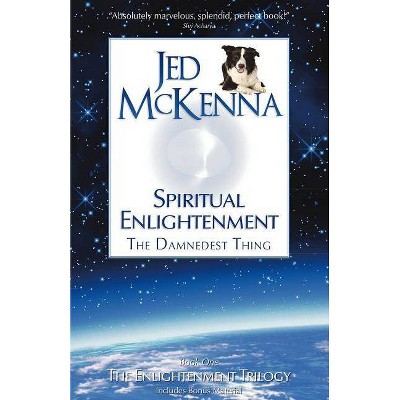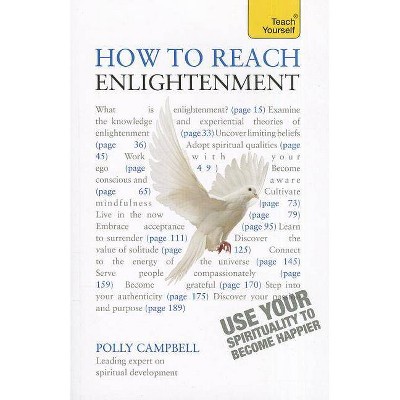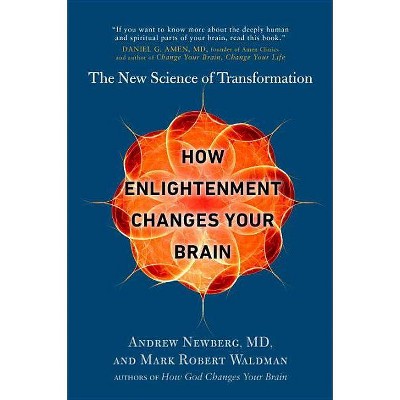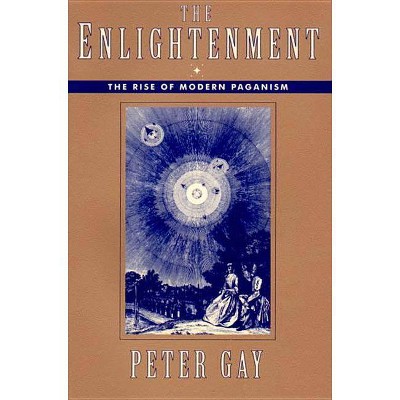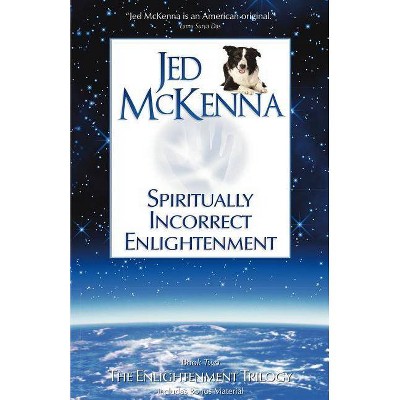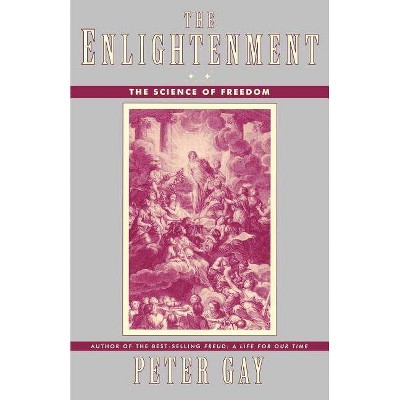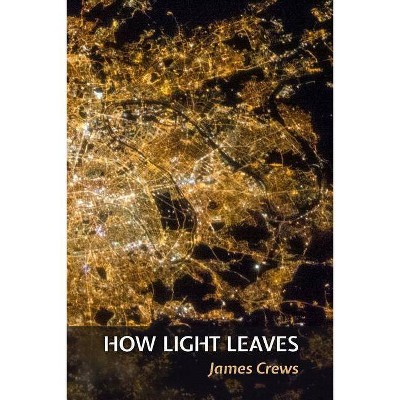How to Attain Enlightenment - by James Swartz (Paperback)
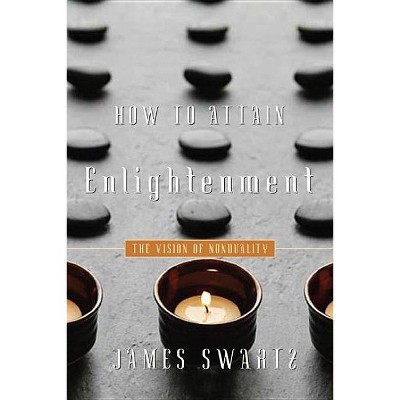
Similar Products
Products of same category from the store
AllProduct info
<p/><br></br><p><b> About the Book </b></p></br></br>This complete guide to enlightenment presents the wisdom of the ancient science of self-inquiry, a time-tested means for achieving spiritual freedom. The author convincingly refutes the popular view that enlightenment is a unique state of consciousness and debunks a host of other myths. In his straightforward style he reveals proven methods for purifying the mind, and takes the reader from the beginning to the end of the spiritual path, patiently unfolding the logic of self-inquiry.<p/><br></br><p><b> Book Synopsis </b></p></br></br>Starts from the point of view of any individual seeking happiness and logically walks the seeker through the whole spiritual path. This book explains how self-inquiry affects the lives of those who practice it, including its effects on personality, relationships, and the mind. It considers the qualifications necessary for enlightenment.<p/><br></br><p><b> Review Quotes </b></p></br></br><br>Sentient Publications presents its next best-seller, How to Attain Enlightenment the Vision of Nonduality by acclaimed author James Schwartz, who offers his ample wisdom on the ancient teachings of Vedanta . In Hinduism, Vedanta is a system of philosophy that further develops the connotation in the philosophies that add to the theology of ancient Hinduism. In his first chapter, Inquiry into Object Happiness Schwartz holds the key to what it means to discover enlightenment rather, a higher sense of awareness and consciousness to receive guidance and be in unison with the power of the Universe: What we call reality is governed by the uncertainly principle, writes Schwartz, Because our source of food, animal or vegetable, is unconcerned about our need to survive, we are forced to either pursue it or cultivate it. Shelter does not simply happen on its own but requires effort to obtain. The same principle holds true in what he further elaborates that even when material needs have been met, individuals often find that they are still not completely fulfilled or satisfied in their lives this is where having and maintaining a state of Vedanta helps soul seekers to be at one with the self and with the Universe, regardless of life circumstances. If you are on a quest for wisdom and are ready to manifest a heightened state of consciousness so that you can become liberated and freed from the limitations that negate your personal and spiritual happiness, then gain the knowledge you need that Schwartz offers in his book How to Attain Enlightenment through a vast array of teachings, meditations, and more. --CarolAnnB<br><br>Would you like to learn how to attain enlightenment? Well regardless of the semantics of whether enlightenment is something to be attained, welcome to the enlightenmentdudes.com review of How to Attain Enlightenment by James Swartz. This really is a handbook of enlightenment. He covers what enlightenment is not, such as not an experiential state, and then gets into what enlightenment is. He talks about qualifications, or a background of spiritual maturity the seeker needs to have. And he explains what self inquiry really is. Swartz also spends time debunking enlightenment myths and exposing the inaccuracy of the teachings of neo-advaita (primarily western) instant enlightenment spiritual teachers. The book reminded me of how it is to enter a relationship. It started off well, but then you reach a point where you ask yourself whether you want to go on. There was a period where I was wondering what kind of point he was trying to make and if it was actually going anywhere. Like weathering a relationship through the tough times, I went on, and I m glad it did. Swartz is very funny in parts of the book, and it was refreshing to see a guy write in a fashion that uses descriptive terms that don t have you reading the words consciousness, awareness or pure being in every paragraph. There are too many spiritual books full of that crap, and Swartz is a very pleasant departure from that. The writer has a very keen understanding of self inquiry and other methods on the spiritual path, and he discusses the benefits of each. Swartz spent considerable time in India learning self-inquiry and has a chapter dedicated to questions about Ramana Maharshi. Swartz s teacher was not a Ramana follower so there are areas where he differentiates from Ramana. He also discusses how one s lifestyle has a major impact on enlightenment and he differentiates terms awakening and enlightenment as being two different things. Overall, if you can get through the slow parts, this is an excellent and comp<br><br>How to Attain Enlightenment explains and focuses on Vedanta, the science of self-inquiry, and considers the myths behind the state of enlightenment and its connections to happiness. The ancient teachings of Vedanta form a foundation of knowledge and practice that has questioned the nature of reality itself, and this survey of love, lifestyle, experience and more offers a fine survey perfect for new age libraries. --Midwest Book Review<br><br>The Vision of Nonduality explains methods of Vedanta in his survey of spiritual techniques, pairing theory with practice and explaining the myths and realities behind an enlightened state. From reflections on moving to a larger living space and clutter to assimilating experiences, How to Attain Enlightenment is a powerful survey any new age library needs. -The Bookwatch, May 21, 2010<br><br>Though based on the ancient wisdom and knowledge of Vedanta, it comes as a breath of fresh air. A biased outlook may regard this information as old and musty, but the modern perspective display s a new approach to this gleaming and invaluable treasure. Any worldly and material knowledge is incomplete, for it is merely a miniscule part of the whole Universe. But self-knowledge, which emphasizes oneness and the non-dual, presents knowledge which is complete and whole. This book goes through the entire gamut of topics covered by the Vedas, making use of yoga, detachment, the ego, karma, dharma, love, meditation and much more, to bring about an inner growth, wherein is visible the enlightened and luminous self. --East and West Magazine<br><p/><br></br><p><b> About the Author </b></p></br></br>James Swartz grew up in Montana and attended Lawrence University in Appleton, Wisconsin and the University of California at Berkeley before finding his niche in the world of business. He saw great success as a businessman, but in 1967 he experienced a major epiphany that turned him away from that path. Instead, he traveled to India on a spiritual journey, searching for the path to enlightenment. It was here that he learned of the famous Indian sage Swami Chinmayananda, whose knowledge and teachings proved to be the means to set James free. Now a disciple of the sage, James travels extensively to cities in America, Europe, and India to hold seminars on Vedanta, the science of self-inquiry. He provides resources for understanding non-duality through his website, www.shiningworld.com. James has previously self-published two non-fiction books: Meditation: An Inquiry into the Self (1998) and The Mystery Beyond the Trinity (1998).
Price History
Price Archive shows prices from various stores, lets you see history and find the cheapest. There is no actual sale on the website. For all support, inquiry and suggestion messagescommunication@pricearchive.us
